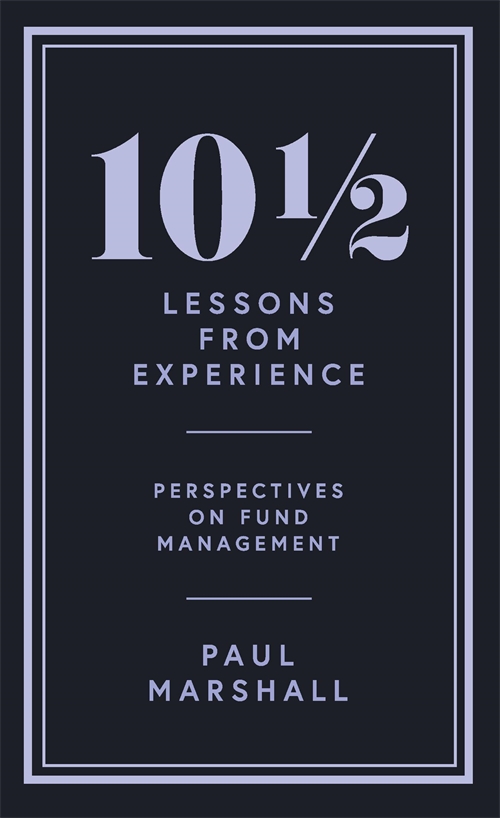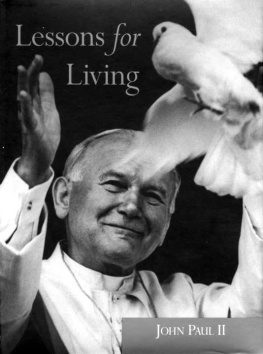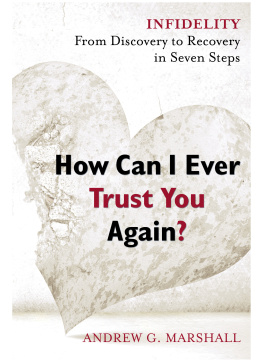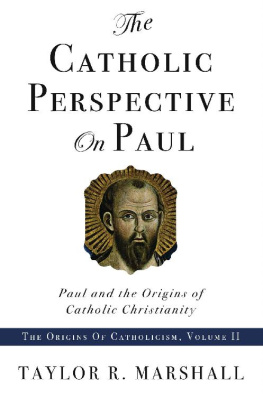Paul Marshall - 10½ Lessons from Experience
Here you can read online Paul Marshall - 10½ Lessons from Experience full text of the book (entire story) in english for free. Download pdf and epub, get meaning, cover and reviews about this ebook. year: 2020, publisher: IPS - Profile Books, genre: Romance novel. Description of the work, (preface) as well as reviews are available. Best literature library LitArk.com created for fans of good reading and offers a wide selection of genres:
Romance novel
Science fiction
Adventure
Detective
Science
History
Home and family
Prose
Art
Politics
Computer
Non-fiction
Religion
Business
Children
Humor
Choose a favorite category and find really read worthwhile books. Enjoy immersion in the world of imagination, feel the emotions of the characters or learn something new for yourself, make an fascinating discovery.

- Book:10½ Lessons from Experience
- Author:
- Publisher:IPS - Profile Books
- Genre:
- Year:2020
- Rating:3 / 5
- Favourites:Add to favourites
- Your mark:
- 60
- 1
- 2
- 3
- 4
- 5
10½ Lessons from Experience: summary, description and annotation
We offer to read an annotation, description, summary or preface (depends on what the author of the book "10½ Lessons from Experience" wrote himself). If you haven't found the necessary information about the book — write in the comments, we will try to find it.
10½ Lessons from Experience — read online for free the complete book (whole text) full work
Below is the text of the book, divided by pages. System saving the place of the last page read, allows you to conveniently read the book "10½ Lessons from Experience" online for free, without having to search again every time where you left off. Put a bookmark, and you can go to the page where you finished reading at any time.
Font size:
Interval:
Bookmark:

First published in Great Britain in 2020 by
Profile Editions, an imprint of
Profile Books Ltd
29 Cloth Fair
London EC1A 7JQ
www.profilebooks.com
Copyright Paul Marshall 2020
The moral right of the author has been asserted.
All rights reserved. Without limiting the rights under copyright reserved above, no part of this publication may be reproduced, stored or introduced into a retrieval system, or transmitted, in any form or by any means (electronic, mechanical, photocopying, recording or otherwise), without the prior written permission of both the copyright owner and the publisher of this book.
All reasonable efforts have been made to obtain copyright permissions where required. Any omissions and errors of attribution are unintentional and will, if notified in writing to the publisher, be corrected in future printings.
A CIP catalogue record for this book is available from the British Library.
E-publication based on ISBN 9781788166232
Ian Wace and I founded Marshall Wace 21 years ago. We have lived and invested through several cycles and much turbulence, including LTCM, the internet bubble and crash, 9/11, the Great Moderation, the Great Financial Crisis, the Euro Crisis, Whatever it takes and QE to Infinity. We have made mistakes along the way, but over time we have forged an investment model combining fundamental and systematic equity long/short strategies which is pretty much unique around the world. It is a model which achieves robustness through diversification and through the combined efforts of a deep bench of talented investors and analysts. And it has enabled Marshall Wace to become one of the worlds more successful hedge fund businesses.
We have learned many lessons through the years, and my own evolving thoughts on investing have been pruned and rounded, developing into a set of perspectives which have in turn helped in shaping and measuring the development of others within Marshall Wace.
This small publication attempts to describe some of these perspectives. It is not intended to be comprehensive, nor is it intended to be formulaic. The nature of investing is that to be successful you need to constantly adapt. Markets and market participants are continuously evolving. To beat the markets, to generate alpha, you have to beat the other participants. And as they change, so you too need to evolve. That is why I call them lessons from experience. We keep learning.
Marshall Wace was not built on these lessons. Neither Ian nor I would suggest they were the original building blocks of the investment business. Nonetheless, they have played their part, implicitly or explicitly, in the way we have thought about the challenges we have faced over time and in the way we have shaped the business, especially on the fundamental side.
Central to the success of any investment management business, and most certainly to Marshall Wace, are the processes and systems which support the investment management activity. Our business would not have succeeded without the investments we have made in optimisation, trading, technology and operating systems. Investment alpha is always reported net of trading costs and stock lending costs. Relative to our competitors our low-cost structure is an integral factor in the strength of our alpha. It is the genius of my partner, Ian, that he always understood the vital role played by systems and infrastructure and had the vision and passion to invest in them.
Ultimately, any investment management firm is dependent on the commitment and confidence of its clients. We are their servants and it is only thanks to their unfailing support for over twenty years that we have been able to invest, deliver and evolve.
In theory there is no difference between theory and practice. In practice there is.
(Yogi Berra)
There can be no field of human knowledge where the disconnect between theory and practice is as pronounced as finance.
Financial theorists build models on the basis that markets are rational and efficient. Many practitioners have been able to build fortunes out of the fact that they are not.
Most of the theory which has accumulated to explain and predict markets is axiomatic and reductive. Yet it is supposed to be applied to a domain which is complex, constantly evolving, and unpredictable.
Axioms and reductive assumptions provide shortcuts to understanding complex systems. If they work, of course, even for most of the time, they can deliver huge benefits (and profits). Axiomatic thinking can be effective and can stand the test of time in a domain like physics or pure maths, where the objects of the theory are inanimate or mechanical. But axiomatic thinking is inherently dangerous in the social sciences basically in any domain which involves human agency in the systems you are trying to model or predict.
Axiomatic thinking is the ugly child of the Enlightenment. From its earliest days, the Enlightenment traced two paths, what you might call the Scottish path and the French path. The claims of science as advanced by David Hume were inherently modest:
There is nothing in any object, considerd in itself, which can afford us a reason for drawing a conclusion beyond it even after the observation of the frequent or constant conjunction of objects, we have no reason to draw any inference concerning any object beyond those of which we have had experience.
(Hume, A Treatise of Human Nature, 173940)
Scottish thinkers (Hutcheson, Hume, Smith) were empiricists they chose to advance with humility, tentatively, and on the basis of what worked.
In contrast, the tradition of French philosophy was, almost from its beginnings, rational, deductive and reductive. French thinkers like Descartes, Rousseau, Walras preferred to start with axioms and then seek out the evidence to prove them.
To be fair, this was not purely a French trait. One of the most formative thinkers in the development of Enlightenment economics was the Englishman, William Jevons, who perhaps more than any other was responsible for using the methods of maths and physics to try to turn economics into a science. It was Jevons who introduced the idea of quantifying the feelings of pleasure and pain and established the theory of marginal utility. Another Englishman, the philosopher John Stuart Mill, is credited with the step of reducing man to a purely economic entity (homo economicus) for the purposes of his political theory:
Political economy does not treat the whole of mans nature as modified by the social state, nor of the whole conduct of man in society. It is concerned with him solely as a being who desires to possess wealth, and who is capable of judging the comparative efficacy of means for obtaining that.
(Mill, On the Definition of Political Economy, 1836)
The axiomatic, or what some call Rationalist, tradition has continued to flourish in the post-Second World War period, led by the Chicago School, and it remains to this day remarkably disconnected from financial market practice. It is facing increasing challenge, though, not least from behavioural economics and from a new school called complexity economics. In 1987 the Santa Fe Institute founded this new discipline, and in one of their inaugural sessions organised a ten-day meeting to discuss economics. On one side, they invited leading economists such as Kenneth Arrow and Larry Summers; on the other side, they invited physicists, biologists and computer scientists such as Nobel-winning Philip Anderson and John Holland. When the economists explained their assumptions, Phil Anderson said to them, You guys really believe that? Sadly most of them still do.
Next pageFont size:
Interval:
Bookmark:
Similar books «10½ Lessons from Experience»
Look at similar books to 10½ Lessons from Experience. We have selected literature similar in name and meaning in the hope of providing readers with more options to find new, interesting, not yet read works.
Discussion, reviews of the book 10½ Lessons from Experience and just readers' own opinions. Leave your comments, write what you think about the work, its meaning or the main characters. Specify what exactly you liked and what you didn't like, and why you think so.








